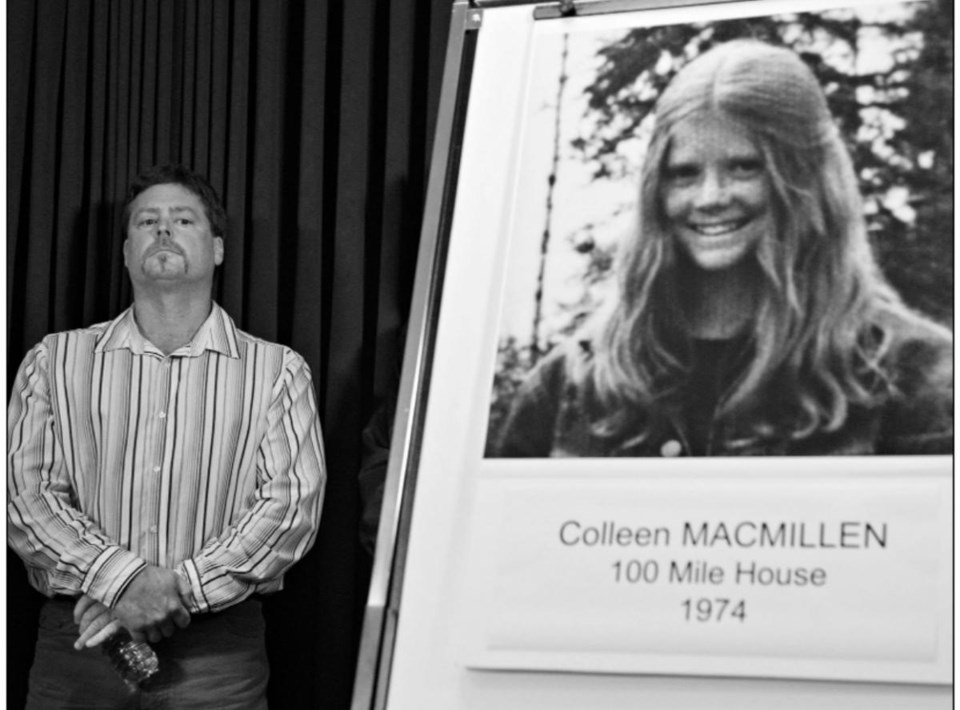RCMP say they believe a deceased Oregon inmate is responsible for at least one of the murders in British Columbia's socalled Highway of Tears investigation.
Bobby Jack Fowler is believed to have murdered 16-year-old Colleen MacMillen in August 1974. She was last seen leaving home to hitchhike to visit a friend near Lac La Hache, about 300 kilometres south of Prince George.
Although Fowler is also believed to have been responsible for at least two other murders and potentially more, police say they know he isn't the sole culprit involved in the disappearances and killings of 18 women in the region of the dreaded stretch of isolated roadway.
"Will we solve the remaining 17? I'm not certain," said Insp. Gary Shinkaruk, one of the lead investigators with the RCMP's E-Pana probe.
Shinkaruk said Tuesday that in two other E-Pana cases, police have isolated the DNA of two separate offenders, both now dead. Shinkaruk did not name them.
He said police have very strong persons of interest in a few other files, but are not yet able to bring evidence forward.
Police say Fowler was a transient labourer with a long criminal record for violent offences in the United States and that he worked in Prince George in the 1970s as a roofer and labourer.
Fowler died in 2006 in an Oregon prison, where he was serving time for kidnapping and attempting to rape a woman.
The news of his DNA being linked to MacMillen was bittersweet for her family.
"Although this is a somewhat unsatisfactory result because this individual won't have to stand trial for what he did, we are comforted by the fact that he was in prison when he died and that he can't hurt anyone else," MacMillen's brother Shawn said at a news conference.
Shinkaruk said DNA samples from the MacMillen case were sent for re-testing in 2007 and the profile of an unidentified man turned up.
A link with Fowler was found earlier this year after the samples were matched against Interpol's data bank.
Shinkaruk brushed aside suggestions that police should have considered Fowler as a suspect earlier.
He noted Fowler does not have a criminal record in Canada and, although the police work done on the file at the time of the murder was excellent, policing techniques and science have evolved considerably.
As well, he said records of people travelling back and forth across the border before the terrorist attacks in Sept. 11, 2001, are considerably less helpful than those after the attacks.
"We have not been able to find [Fowler] in Canada. We've sent his fingerprints to Ottawa to see if he was living under an assumed name," Shinkaruk said, but nothing came up.
"Without the assistance of DNA, we would not have been able to solve this."
Police are hoping for the public's help in finding out more about Fowler's time in Canada. Investigators believe he worked at a Prince George roofing company in the 1970s.
He said Fowler liked old cars, that he frequented bars and was violent toward men and women.
"There is a pocket of time in the U.S. where he doesn't have interaction with law enforcement," Shinkaruk said.
Project E-Pana is investigating cases between 1969 and 2006, but aboriginal activists have complained police were too slow to move on murders they believed to be the work of a serial killer.
E-Pana was launched in 2006 and included cases in the north and central regions, not just those along Highway 16.
Madeline Lanaro, the mother of Monica Jack who was found dead in 1978, said she was informed by the RCMP last week that there would be an announcement but it wouldn't involve her daughter.
Lanaro said she knows police have been working on the case for years but the death of her daughter never escapes her.
"It's always there, everyday," she said.



